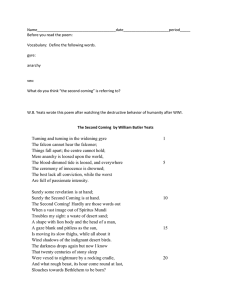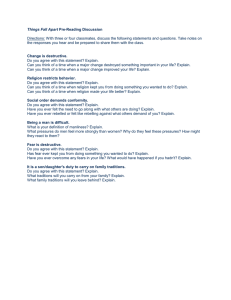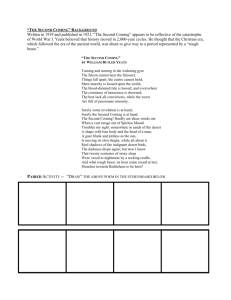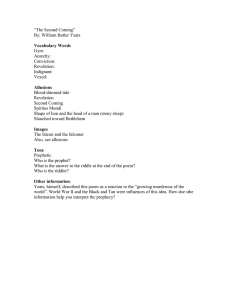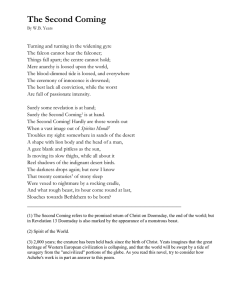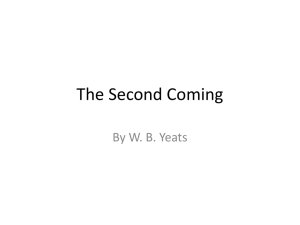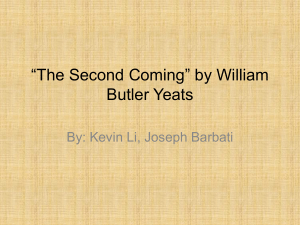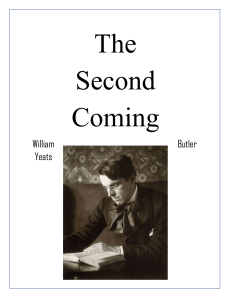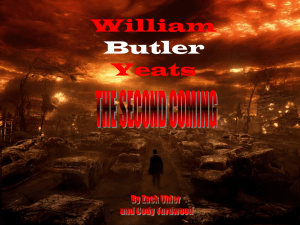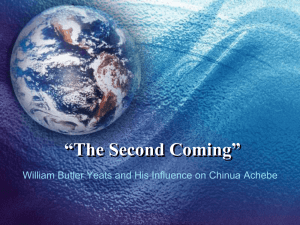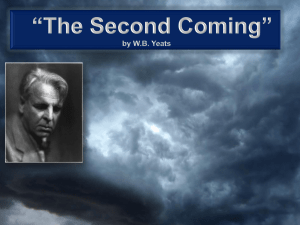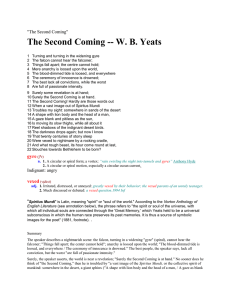Name: Period:______ Date
advertisement
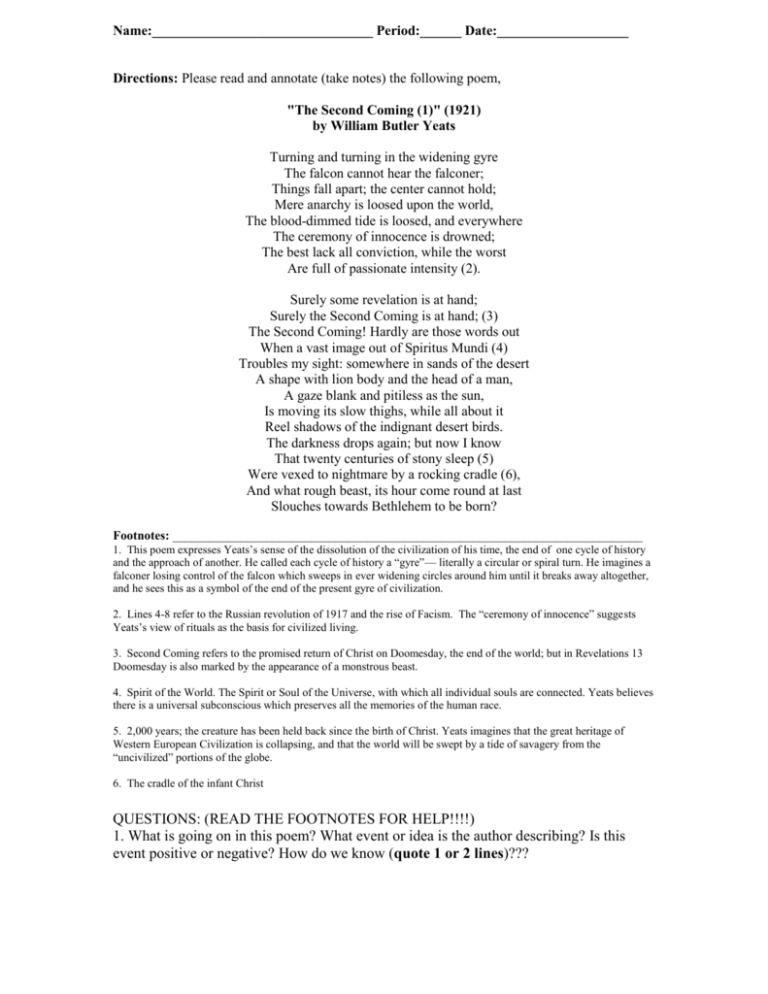
Name:________________________________ Period:______ Date:___________________ Directions: Please read and annotate (take notes) the following poem, "The Second Coming (1)" (1921) by William Butler Yeats Turning and turning in the widening gyre The falcon cannot hear the falconer; Things fall apart; the center cannot hold; Mere anarchy is loosed upon the world, The blood-dimmed tide is loosed, and everywhere The ceremony of innocence is drowned; The best lack all conviction, while the worst Are full of passionate intensity (2). Surely some revelation is at hand; Surely the Second Coming is at hand; (3) The Second Coming! Hardly are those words out When a vast image out of Spiritus Mundi (4) Troubles my sight: somewhere in sands of the desert A shape with lion body and the head of a man, A gaze blank and pitiless as the sun, Is moving its slow thighs, while all about it Reel shadows of the indignant desert birds. The darkness drops again; but now I know That twenty centuries of stony sleep (5) Were vexed to nightmare by a rocking cradle (6), And what rough beast, its hour come round at last Slouches towards Bethlehem to be born? Footnotes: ___________________________________________________________________________ 1. This poem expresses Yeats’s sense of the dissolution of the civilization of his time, the end of one cycle of history and the approach of another. He called each cycle of history a “gyre”— literally a circular or spiral turn. He imagines a falconer losing control of the falcon which sweeps in ever widening circles around him until it breaks away altogether, and he sees this as a symbol of the end of the present gyre of civilization. 2. Lines 4-8 refer to the Russian revolution of 1917 and the rise of Facism. The “ceremony of innocence” suggests Yeats’s view of rituals as the basis for civilized living. 3. Second Coming refers to the promised return of Christ on Doomesday, the end of the world; but in Revelations 13 Doomesday is also marked by the appearance of a monstrous beast. 4. Spirit of the World. The Spirit or Soul of the Universe, with which all individual souls are connected. Yeats believes there is a universal subconscious which preserves all the memories of the human race. 5. 2,000 years; the creature has been held back since the birth of Christ. Yeats imagines that the great heritage of Western European Civilization is collapsing, and that the world will be swept by a tide of savagery from the “uncivilized” portions of the globe. 6. The cradle of the infant Christ QUESTIONS: (READ THE FOOTNOTES FOR HELP!!!!) 1. What is going on in this poem? What event or idea is the author describing? Is this event positive or negative? How do we know (quote 1 or 2 lines)???
